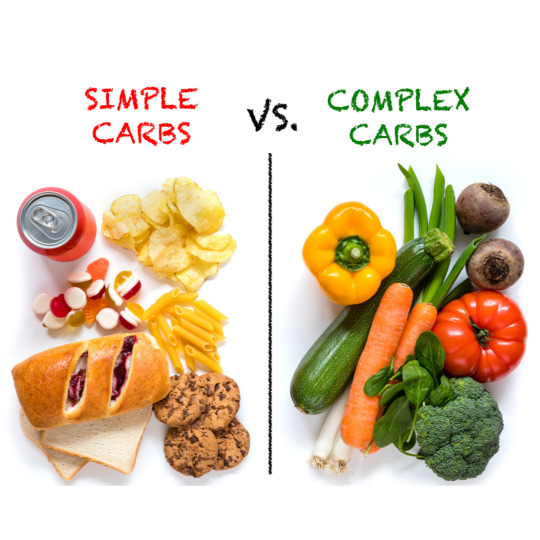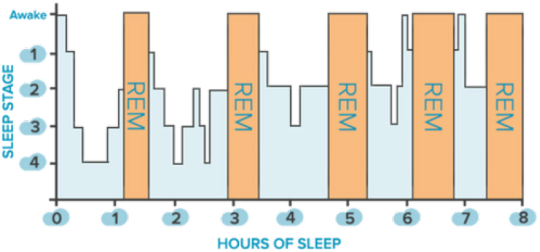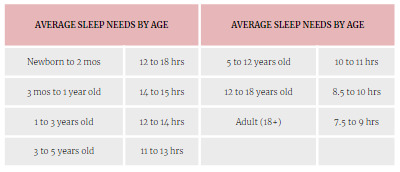#healthy carbs
Text

Actually had more veggies than I logged for my food diary.
But oh my, was it worth it.
My current focus is plenty of fibre, pre and probiotics.
Job done.
This was a huge plate of healthy carbs, protein and a bit of added fat with cheddar cheese.
Chicken, lentils, garden peas, brussels sprouts, tinned tomatoes, carrot and mixed herbs thrown in a big saucepan.
Delicious, very filling and bursting with goodness!!
#healthy living#health and fitness#suzieb-fit#healthy carbs#health and nutrition#diet and nutrition#healthy nutrition#good nutrition#high fibre
7 notes
·
View notes
Text
Healthy Eating, tips, habits

Five Good Eating Practises
When it comes to diet and health, there is no one-size-fits-all approach. To encourage a healthy, active lifestyle, there are some common dietary habits that everyone should take into account. Here are five suggestions for eating better:
1. Have a healthy breakfast. You will feel more energised and focused throughout the day if you have a good breakfast. Additionally, it keeps your metabolism active and aids in controlling your hunger. To start your day off well, try protein, nutritious carbohydrates, and lots of fruits and vegetables.
2.Don't lack for omega-3 fatty acids. Omega-3 fatty acids are crucial for protecting against heart disease, reducing inflammation, and improving sleep. Consume fatty fish frequently, such as salmon, mackerel, or herring, or take a fish oil supplement. read more
#healthy eating#balanced diet#healthy diet#clean eating#heart healthy diet#7 day diet plan for weight loss#healthy carbs#best diet to lose weight#gestational diabetes diet#meal plan for weight loss#healthy meals for weight loss#best foods for weight loss#good sources of protein#healthy meals for dinner#healthy diet plan#eat fit#healthy meal#weight gain diet plan#healthy eating habits#healthy foods to lose weight#eating habits#clean eating meal plan#healthy foods to eat#healthy grocery list#healthy eating plan#breakfast for weight loss#healthy meal plan#superfoods list#healthy meals on a budget#healthy vegetables
9 notes
·
View notes
Text
Carbs Myths Busted
Are carbs really the enemy if you want to become a Fit Girl? 💀 There are a lot of myths out there about carbs, but don't let these misconceptions prevent you from eating some of your favorite snacks.

Carbs make you fat - False. Eating too many calories (of any food) will lead to weight gain, but carbohydrates themselves are not the enemy when it comes to getting fit.
All carbs are bad - False. There are two main types of carbohydrates: simple and complex. Simple carbs such as white breads and pastas🍝 can be easy to over consume, so try to limit your intake of these foods. However, complex carbohydrates like sweet potatoes🍠, whole grain bread, brown rice and quinoa provide essential vitamins and minerals for a healthy lifestyle!
Carbohydrates should always be avoided when trying to lose weight – False. It's important for us all (no matter our fitness goals) to get an adequate amount of carbohydrates in our diet since they provide energy for our bodies. If you do need or want to lower your carbohydrate intake, focus on cutting out processed foods that contain added sugars🍩 instead of cutting out carbs as a food group altogether.

Simple and complex carbohydrates each provide different benefits. Simple carbohydrates get broken down quickly by the body and provide a quick energy boost that usually doesn't last very long. Complex carbohydrates🥦 on the other hand take longer to digest and can provide sustained energy.
Eating the right kind of carbs is important for a healthy diet but there's no need to swear off carbs altogether! Eating a balanced meal with some complex carbohydrates will give you the energy you need to stay fit and healthy all day long. So don't let the myths about carbs get you down.
Happy eating! 🥞🥗😋
#carbs#nutrition#healthy eating#healthy food#health#healthandwellness#health tips#healthy lifestyle#healthy diet#diet#clean eating#complex carbs#healthy carbs#carbscarbscarbs#healthblr#fitblr#health blog#health journey#wellness#wellness journey#health and wellness#lifestyle#healthy weight loss#weight loss#lose weight
6 notes
·
View notes
Text
10 Best Newborn Milks 2023

The best milk for infantsDo you want to feed your newborn healthful baby foods? The top ten milks for a healthy and content baby in 2023 are listed in our guide.
There isn't a single product or formula that is the best for all infants. Additionally, the Food and Drug Administration (FDA) must test the nutritional composition and safety of every infant formula sold in the United States. However, this does not imply that all formulas are the same. One brand or type may work well for certain kids while others may not. The key is figuring out what works best for your infant. Read more
#healthy eating#balanced diet#healthy diet#clean eating#heart healthy diet#7 day diet plan for weight loss#healthy carbs#best diet to lose weight#gestational diabetes diet#meal plan for weight loss#healthy meals for weight loss#best foods for weight loss#good sources of protein#healthy meals for dinner#healthy diet plan#eat fit#healthy meal#weight gain diet plan#healthy eating habits#healthy foods to lose weight#eating habits#clean eating meal plan#healthy foods to eat#healthy grocery list#healthy eating plan#breakfast for weight loss#healthy meal plan#superfoods list#healthy meals on a budget#healthy vegetables
0 notes
Text
Simple Ways to Instill Healthy Eating Habits in Children

Children's Eating Behaviors-With our detailed guide, you can learn how to educate your children healthy eating habits quickly and easily. We have you covered, from creating SMART goals to offering healthy substitutes. You want your kids to grow up strong and healthy as parents. Teaching them healthy eating habits from an early age is one of the finest methods to get them started down the correct path. But as we all know, it may be difficult to get youngsters to eat their fruits and veggies. read more
#nutrition#healthy eating#balanced diet#healthy diet#clean eating#heart healthy diet#7 day diet plan for weight loss#healthy carbs#best diet to lose weight#gestational diabetes diet#meal plan for weight loss#healthy meals for weight loss#best foods for weight loss#good sources of protein#healthy meals for dinner#healthy diet plan#eat fit#healthy meal#weight gain diet plan#healthy eating habits#healthy foods to lose weight#eating habits#clean eating meal plan#healthy foods to eat#healthy grocery list#healthy eating plan#breakfast for weight loss#healthy meal plan#superfoods list#healthy meals on a budget
1 note
·
View note
Text
Healthy Eating, tips, habits

Five Healthy Eating Practices to Include in Your Diet
Looking to change your diet and develop some healthy eating practises? We've got you covered on everything from adding fresh vegetables into your everyday routine to enhancing your dishes with spices read more
#healthy#healthy eating#balanced diet#healthy diet#clean eating#heart healthy diet#7 day diet plan for weight loss#healthy carbs#best diet to lose weight#gestational diabetes diet#meal plan for weight loss#healthy meals for weight loss#best foods for weight loss#good sources of protein#healthy meals for dinner#healthy diet plan#eat fit#healthy meal#weight gain diet plan#healthy eating habits#healthy foods to lose weight#eating habits#clean eating meal plan#healthy foods to eat#healthy grocery list#healthy eating plan#breakfast for weight loss#healthy meal plan#superfoods list#healthy meals on a budget
1 note
·
View note
Text
Healthy EatingFive Healthy Eating Practices to Include in Your Diet
Healthy Eating
Five Healthy Eating Practices to Include in Your Diet
Looking to change your diet and develop some healthy eating practises? We've got you covered on everything from adding fresh vegetables into your everyday routine to enhancing your dishes with spices.
Five Good Eating Practises
When it comes to diet and health, there is no one-size-fits-all approach. To encourage a healthy, active lifestyle, there are some common dietary habits that everyone should take into account. Here are five suggestions for eating better:
Have a healthy breakfast. You will feel more energised and focused throughout the day if you have a good breakfast. Additionally, it keeps your metabolism active and aids in controlling your hunger. To start your day off well, try protein, nutritious carbohydrates, and lots of fruits and vegetables.
Don't lack for omega-3 fatty acids. Omega-3 fatty acids are crucial for protecting against heart disease, reducing inflammation, and improving sleep. Consume fatty fish frequently, such as salmon, mackerel, or herring, or take a fish oil supplement.
Increase your fibre intake. Fibre is crucial for gut health and, by encouraging regular bowel movements, lowers the risk of obesity and heart disease. Attempt to consume at least 25 grammes of veggies, whole grains, and legumes per day. read more
#healthy eating#balanced diet#healthy diet#clean eating#heart healthy diet#7 day diet plan for weight loss#healthy carbs#best diet to lose weight#gestational diabetes diet#meal plan for weight loss#healthy meals for weight loss#best foods for weight loss#good sources of protein#healthy meals for dinner#healthy diet plan#eat fit#healthy meal#weight gain diet plan#healthy eating habits#healthy foods to lose weight#eating habits#clean eating meal plan#healthy foods to eat#healthy grocery list#healthy eating plan#breakfast for weight loss#healthy meal plan#superfoods list#healthy meals on a budget#healthy vegetables
1 note
·
View note
Text
Healthy Eating

Healthy Eating
Five Healthy Eating Practices to Include in Your Diet
Looking to change your diet and develop some healthy eating practises? We've got you covered on everything from adding fresh vegetables into your everyday routine to enhancing your dishes with spices read more
#healthy eating#balanced diet#healthy diet#clean eating#heart healthy diet#7 day diet plan for weight loss#healthy carbs#best diet to lose weight#gestational diabetes diet#meal plan for weight loss#healthy meals for weight loss#best foods for weight loss#good sources of protein#healthy meals for dinner#healthy diet plan#eat fit#healthy meal#weight gain diet plan#healthy eating habits#healthy foods to lose weight#eating habits#clean eating meal plan#healthy foods to eat#healthy grocery list#healthy eating plan#breakfast for weight loss#healthy meal plan#superfoods list#healthy meals on a budget#healthy vegetables
1 note
·
View note
Photo

Lentil soup
Recipe https://www.cookwithkushi.com/lentil-soup/
1 note
·
View note
Photo

Brown butter steak with roasted garlic whipped cauliflower
#steak#beef#meat#cauliflower#food#healthy recipes#low carb#garlic#roasted garlic#cauliflower mash#red meat#ribeye#main course#meal#foodporn#delicious#cooking#food photography#foodgasm#recipe
5K notes
·
View notes
Text
Say Yes To Carbs: 5 Reasons Why You Should Be Eating Carbs
As quickly as anybody says nutritious diet, the very first thing that involves our thoughts is eliminating carbs. As per well-liked notion, carbohydrate results in weight achieve, excessive ldl cholesterol, poor metabolism and extra. While we do not negate this concept utterly, one should additionally keep in mind, carbohydrate makes for an vital nutrient to take care of a balanced diet. Getting…

View On WordPress
#carbohydrates health benefits#carbs for healthy hearts#carbs for weight loss#carbs to boost energy#healthy carbs#healthy diet
0 notes
Text

Oh my goodness me.
This dairy/gluten/refined carb free life ain't always so bad!
Home grown raw rhubarb spread with peanut butter.
Coffee with oat milk.
Yes please and thank you!! 😍
And before that, I dug out an old favourite fitness dvd.
Excellent cardio workout!

#healthy living#health and fitness#good nutrition#healthy nutrition#diet and nutrition#suzieb-fit#dairyfree#dairy free#gluten intolerance#gluten free#healthy lifestyle#healthy eating#healthy carbohydrates#healthy carbs#type one diabetic#type 1 diabetic#type 1 diabetes#fitspo#fitspiration#fitblr#fitness#fit#workout#cardio workout#cardiovascular health
5 notes
·
View notes
Text

Complex Carbohydrates by @ricklondoncartoons
Like the toon? Check out the funny merch
#carbs#i love carbs#healthy carbs#all the carbs#complex carbs#complex carbohydrates#philosophy#philosopher#merch#funny merch#funny gift#funny gifts#rick london#rick london gifts#rick london cartoons#ricklondon#ricklondongifts#ltcartoons#ltcartoongifts#food#foodie#foodies
0 notes
Text
Lifestyle Management - Part 1

LIFESTYLE MANAGEMENT
THE IMPORTANCE OF SLEEP
This article kicks off our lifestyle management eBook series and looks at the extremely important topic of sleep.
It is accepted that everything within the animal kingdom must sleep, yet the exact purpose and mechanism of sleep are only partially understood.
An interesting and engaging topic for all, everyone sleeps right?!
Understanding sleep, the power it holds and how to get as much high-quality sleep as possible is one of the most effective performance strategies we can adopt. If there was a pill that provided the benefits of a good night’s sleep, everyone would be taking it. We can all relate to how a loss of sleep can take its toll on our energy, mood, decision-making and ability to handle stress. Not
Sleep should therefore be of top priority for all of us! Many people try to sleep as little as possible, but just as exercise and nutrition are essential for optimal health and happiness, so is sleep.
No other activity delivers so many benefits with so little effort. It has a direct correlation to the quality of our waking life. This article will look at the true power of sleep, how it works and the importance of it.
The Role Of Sleep
The science of sleep is the study of the neuroscientific and physiological basis of the nature of sleep and its functions.
Despite sleep being of such importance to the human body, the purposes and mechanisms are only partially understood. It is assumed the key benefits we get from enough sleep have evolved over time, thus creating greater dependence on getting sufficient and quality sleep.
Sleep is a naturally recurring state characterized by reduced or absent consciousness, and the inactivity of nearly all voluntary muscles.
Sleep timing is controlled by the circadian clock, and in humans, to some extent by willed behavior. The circadian clock (also known as circadian oscillator) allows us to coordinate our biology and behavior with daily and seasonal changes in the day – night cycle. This in-built biological clock operates over a 24-hour period and receives daily corrective signals from the environment, primarily daylight and darkness. Circadian clocks are the central mechanisms which drive circadian rhythms.
The term circadian comes from the Latin ‘circa’, meaning ‘around or approximately’, and diem meaning ‘day’. An endogenous (built-in), entrainable oscillation of about 24 hours.

This clock is reset as the environmental changes through our ability to sense external cues of which the primary one is light. This clock is considered to be intertwined with most cellular processes.
When we sleep, the body doesn’t just shut down and switch off. In fact, while we rest, the brain oversees a wide variety of biological maintenance that improves our health markers and aids recovery.
Below is a number of key proposed functions of sleep:
RESTORATION
Sleep is restorative, and without it we are not able to work, learn, create and communicate at our highest level. With time, lack of sleep can lead to mental and physical impairments and eventual breakdown.
Sleep has also been shown to be linked to the immune system. Sleep loss can impair our immune function, so by sleeping longer we can invest in strengthening our immune system.
Our sleeping brains have been shown to help remove metabolic waste products at a faster rate than during active state, further enhancing the restorative function of sleep. When awake we are exposed to a greater number of factors such as those in the food we eat,. stress and a range of other toxins. This can lead to a higher concentration of free radicals in the body, paired with a reduced capacity to nutralise or ’quench’ them. Also, with a higher metabolic rate during the day, which produces greater levels of reactive oxygen species, there is a larger number of damaging cells within the body when awake.
When we sleep, our metabolic rates reduce with that the natural production of free radical production is decreased, allowing restorative processes to take over.
The metabolic phase during sleep is anabolic, as we see a greater release of anabolic hormones such as growth hormone. This further adds to the restorative processes of sleep.
MEMORY PROCESSING
There have been numerous studies conducted to show the correlation
between sleep and memory. Furthermore, sleep deprivation has been linked to a reduction of ‘working memory’. This is important because it keeps information active for further processing and supports higher-level cognition functions such as decision-making, reasoning and memory.
PRESERVATION
It’s been suggested that sleep can serve as a ‘preservation and protection’ system to reserve energy and reduce risk.
The Stages Of Sleep
There are a number of stages of sleep that occur every time we get some rest. These stages represent what’s happening beneath the surface, and all play an important part to the benefits that occur from the rest.
There are two main types of sleep:
1. NON-REM (NREM) SLEEP
This is essentially a 3-stage sleep cycle, with each being a deeper level than the previous one.
Stage N1 (Transition to Sleep)
This is a stage between sleep and wakefulness. The muscles are active, the eyes roll slowly under the eyelids, muscle activity slows down and we are easily awakened.
Stage N2 (Light Sleep)
This is considered the first stage of true sleep and is characterized by an increase in ‘theta’ activity within the brain.
We also become harder to awaken, eye movement stops, heart rate slows and body temperature decreases.
Stage N3 (Deep Sleep)
This stage is also known as ‘slow-wave sleep’ and is characterized by an increase in ‘delta’ activity within the brain. During this time, blood flow
to the brain is decreased and passed to the body to enhance its restorative benefits. We are difficult to awaken at this stage.
2. REM (Rapid Eye Movement) SLEEP
REM sleep has been given this name as our eyes can be seen moving back and forth in this stage. It can also be known as ‘dream sleep’ and usually occurs about 60-90 minutes after falling asleep. Eye movement, heart rate and blood pressure increase, yet arm and leg muscles are paralysed.
Every time we sleep we are likely to go through all stages of this sleep cycle. Our bodies move back and forth between REM and N3 sleep to form a complete sleep cycle. Each cycle typically lasts about 90 minutes and repeats four to six times over the course of the night.
Typically, the majority of deep sleep occurs in the first half of the night, with REM stages becoming longer with more light N2 sleep later into the night.
This is why may people report waking up after a number of hours sleep, as their sleep is getting lighter and they are easily awakened.

Each sleep within this sleep cycle has potential benefits to the sleeper. A normal adult spends around 50% of total sleep time in stage 2 sleep, 20% in REM sleep and 30% in stage 1 and 3 sleep.
Stage N3, deep sleep, is considered one of the most important for restoring energy levels. It is heavily involved in maintaining our health, providing growth and development, repairing of muscles and tissues, and boosting the immune system. It essentially renews the body.
REM sleep renews the mind, and is important to ensure a healthy memory and learning ability. During REM sleep, the brain consolidates and processes the information we have learnt that day, while forming neural connections to strengthen the memory and plasticity. It also replenishes its supply of neurotransmitters including feel good chemicals like serotonin and dopamine.
It’s evident that we need a mixture of all sleep stages for optimal health and restoration.
How Much Sleep?
With modern lifestyles people are sleeping less than ever, with the average person getting less than 7 hours per night.
While sleep requirements vary from person to person, this average is not enough for most, and is leading many people into chronic sleep disorder.
Most people sleep as much as they need, not as much as they should for optimal health and performance. In reality, most healthy adults need between 7.5-9 hours of sleep per night for best results. Young adults and children are considered to require even more.

There is no system or protocol to show how many hours we should get exactly, and the best way is to evaluate how we feel throughout the day. If energy is low, memory is poor and we don’t feel alert, then chances are we need more sleep.
Sleep Deprivation
Everyone experiences trouble sleeping from time to time and this can be the result of a number of different factors.
A problem may occur when regular disturbances happen frequently, and these can begin to affect daily life too. If left unchecked, this can lead to a sleep disorder.
Sleep disorders are not just a simple diagnosis of lack of sleep, but all the negative symptoms that can be associated with it, namely poor energy, mood and health markers.
Many sufferers from sleep disorders tend to have an underlying medical or mental health problems, while those with sound health tend to sleep well.
Just like eating disorders, many people go untreated and have difficulty linking their symptoms to a problem. Also, for those who cannot resolve their sleeping habits themselves, they should seek out the help of someone trained in sleep medicine.

SIGNS AND SYMPTOMS
Everyone will have the odd poor night’s sleep leaving them sleep deprived for a short time, but if this becomes a chronic problem then a sleep disorder is likely.
You may be sleep deprived if you:
• Need an alarm clock in order to wake up on time
• Rely on the snooze button
• Have a hard time getting out of bed in the morning
• Feel sluggish in the afternoon
• Get sleepy in meetings, lectures, or warm rooms
• Get drowsy after heavy meals or when driving
• Need to nap to get through the day
• Fall asleep while watching TV or relaxing in the evening
• Feel the need to sleep in on weekends
• Fall asleep within 5 minutes of going to bed
We may all feel these symptoms from time to time, but if it leads to regular occurrences of the below effects, the person is likely to be chronically sleep deprived.
The effects of sleep deprivation include:
• Fatigue, lethargy, and lack of motivation
• Moodiness and irritability
• Reduced creativity and problem-solving skills
• Inability to cope with stress
• Reduced immunity; frequent colds and infection
• Concentration and memory problems
• Weight gain or difficulty losing weight
• Impaired motor skills and increased risk of accidents
• Difficulty making decisions
• Increased risk of diabetes, heart disease, and other health problems
Types Of Sleep Disorders
1. Insomnia
Insomnia is the most common type of sleep disorder and is essentially the inability to get enough sleep to feel fully rested and energized. It can typically be linked to underlying problems such as stress, anxiety, depression, or lifestyle choices such as medications, jet lag, nutrition choices or family issues.
Many cases of insomnia can be resolved following the simple changes recommended in the ‘how to sleep better’ section of the article. However, if you do believe to suffer from this condition which doesn’t improve following some of the following strategies, you should always seek advice from a medical professional.
Common symptoms of insomnia include:
• Difficulty falling asleep at night or getting back to sleep after waking during the night
• Waking up frequently during the night
• Your sleep feels light, fragmented, or exhausting
• You need to take something (sleeping pills, nightcap, supplements) in order to fall asleep
• Sleepiness and low energy during the day
2. Sleep apnea
Sleep apnoea occurs when the upper airways become blocked, forcing breathing to temporarily stop. The result is that the person awakes, but often they never remember doing so. This constant and regular waking leads to poor overall sleep and the negatives associated with it.
This is a common yet very serious disorder that will need treated with help of medical professionals. This is usually done so via Continuous Positive Airway Pressure (CPAP), which delivers a constant stream of air to the person via a mask while they sleep.
Common symptoms include:
• Loud chronic snoring
• Frequent pauses in breathing during sleep
• Gasping, snorting, or choking during sleep
• Feeling exhausted after waking and sleepy during the day, no matter how much time you spent in bed
• Waking up with shortness of breath, chest pains, headaches, nasal congestion, or a dry throat
3. Restless legs syndrome (RLS)
RLS is the constant moving or shuffling of legs or arms due to discomfort, aching or irritable sensations. Common symptoms include:
• Uncomfortable sensations deep within legs, accompanied by a strong urge to move them
• The leg sensations are triggered by rest and get worse during the night
• The uncomfortable sensations temporarily get better when you move, stretch, or massage your legs
• Repetitive cramping or jerking of the legs during sleep
4. Narcolepsy
Narcolepsy involves excessive, uncomfortable daytime sleepiness which can result in the person falling asleep at any given time. This is due to the dysfunction of the brain mechanisms that control sleeping and waking.

Common symptoms include:
• Seeing or hearing things when you are drowsy or starting to dream before you are fully asleep
• Suddenly feeling weak or losing control of your muscles when you are laughing, angry, or experiencing other strong emotions
• Dreaming right away after going to sleep or having intense dreams
• Feeling paralysed and unable to move when you are waking up or dozing off
Our biological clocks can sometimes be knocked out of sync, which can throw our typical sleeping patterns off. Jet lag, insomnia and shift work are common ways to disrupt this system.
How To Sleep Better
Those people with poor sleeping habits or disorders commonly share the same bad habits. What’s that saying.. ”we are what we do repeatedly every day”?
There are a number of sleep-promoting techniques and considerations that can be easily integrated into someone’s evening routine.
GET A ROUTINE
Syncing with the bodies natural clock, the circadian rhythm is one of the
most effective (and natural) methods we have to getting a good night’s sleep.
Getting into a strict and consistent routine of going and getting out of bed at the same time each day will have major benefits.
It’s also important to experiment with different sleep and wake times, as various set ups will benefit people differently. So not only find the ideal length of sleep, but also the times this sleep should start and finish.
CONTROL THE SURROUNDINGS
On top of finding the best sleeping routine, we can naturally encourage the body to feel more alert or relaxed. A hormone known as melatonin is released when we are in dark surroundings, as it helps the body regulate the sleep-wake cycle.
If we are exposed to little to no sunlight during the day, we can release melatonin making us sleepy during the day.
In a bright environment, melatonin production is suppressed. The same occurs at night when we do want a release of melatonin to induce sleep. If we are exposed to bright light or blue light omitted from screens just before bed, it can slow down the release.
The goal should be to spend more time in daylight during the day, with less exposure to it (including artificial light) at night.
KEEP THE BEDROOM FOR SLEEP
Ensuring the bedroom is optimized for relaxing, unwinding and sleeping is essential. The bedroom should therefore become a place to be associated for sleep which will send a powerful signal to help us nod off.
Other important factors here are:
• Eliminating any noises that may disturb our sleep
• Keeping the bedroom at the right temperature
• Removing any electronic equipment
• Ensuring the room is dark enough
• Ensuring the bed is comfortable enough
IMPROVE NUTRITION AND EXERCISE HABITS
Good nutrition habits can drastically improve sleep quality, particularly in the last hours before bed. Some important considerations are:
• Avoid eating large meals before bed
• Avoid drinking too much liquid
• Avoid caffeine in the latter part of the day
• Avoid alcohol before bed
A small bedtime snack containing a balance of protein, fat and carbohydrates can be ideal to help people fall asleep, as that feeling of being satisfied can help the body rest.
Daily exercise can also lead to improved sleep, while exercising too late may disturb the body’s natural wake-sleep cycle as it can act as a heavy stimulus on the body.
REDUCE STRESS AND RELAX
Stress related to family, money, work or other day-to-day difficulties can be a common sleep disruptor. Managing these stressors and using pre-bed relaxation techniques can be effective in aiding a better nights’ sleep.
Some common techniques are:
• Write down any problems or issues
• Conduct some deep breathing techniques
• Use progressive muscle relaxation techniques
• Avoid any stressing tasks or thoughts before bed
• Keep the bedroom clean and tidy
• Have a hot shower or bath
• Do something you enjoy before bed
SUMMARY
We now know the impact sleep can have on the body and health. By upgrading our knowledge around this important topic, we can see drastic improvements in those with sleep disorders and those who are sleep deprived.
#nutrition#wellness#fitness#healthy life#healthy living#healthy carbs#health & fitness#workout#exercise#working out
0 notes
Text
Simple Ways to Instill Healthy Eating Habits in Children

Children's Eating Behaviors-With our detailed guide, you can learn how to educate your children healthy eating habits quickly and easily. We have you covered, from creating SMART goals to offering healthy substitutes. You want your kids to grow up strong and healthy as parents. Teaching them healthy eating habits from an early age is one of the finest methods to get them started down the correct path. But as we all know, it may be difficult to get youngsters to eat their fruits and veggies. read more
#healthy eating#balanced diet#healthy diet#clean eating#heart healthy diet#7 day diet plan for weight loss#healthy carbs#best diet to lose weight#gestational diabetes diet#meal plan for weight loss#healthy meals for weight loss#best foods for weight loss#good sources of protein#healthy meals for dinner#healthy diet plan#eat fit#healthy meal#weight gain diet plan#healthy eating habits#healthy foods to lose weight#eating habits#clean eating meal plan#healthy foods to eat#healthy grocery list#healthy eating plan#breakfast for weight loss#healthy meal plan#superfoods list#healthy meals on a budget#healthy vegetables
0 notes
Text
Healthy Eating

Five Good Eating Practises
When it comes to diet and health, there is no one-size-fits-all approach. To encourage a healthy, active lifestyle, there are some common dietary habits that everyone should take into account. Here are five suggestions for eating better:
1. Have a healthy breakfast. You will feel more energised and focused throughout the day if you have a good breakfast. Additionally, it keeps your metabolism active and aids in controlling your hunger. To start your day off well, try protein, nutritious carbohydrates, and lots of fruits and vegetables.
2.Don't lack for omega-3 fatty acids. Omega-3 fatty acids are crucial for protecting against heart disease, reducing inflammation, and improving sleep. Consume fatty fish frequently, such as salmon, mackerel, or herring, or take a fish oil supplement. read more
#healthy recipes#healthy eating#balanced diet#healthy diet#clean eating#heart healthy diet#7 day diet plan for weight loss#healthy carbs#best diet to lose weight#gestational diabetes diet#meal plan for weight loss#healthy meals for weight loss#best foods for weight loss#good sources of protein#healthy meals for dinner#healthy diet plan#eat fit#healthy meal#weight gain diet plan#healthy eating habits#healthy foods to lose weight#eating habits#clean eating meal plan#healthy foods to eat#healthy grocery list#healthy eating plan#breakfast for weight loss#healthy meal plan#superfoods list#healthy meals on a budget
0 notes